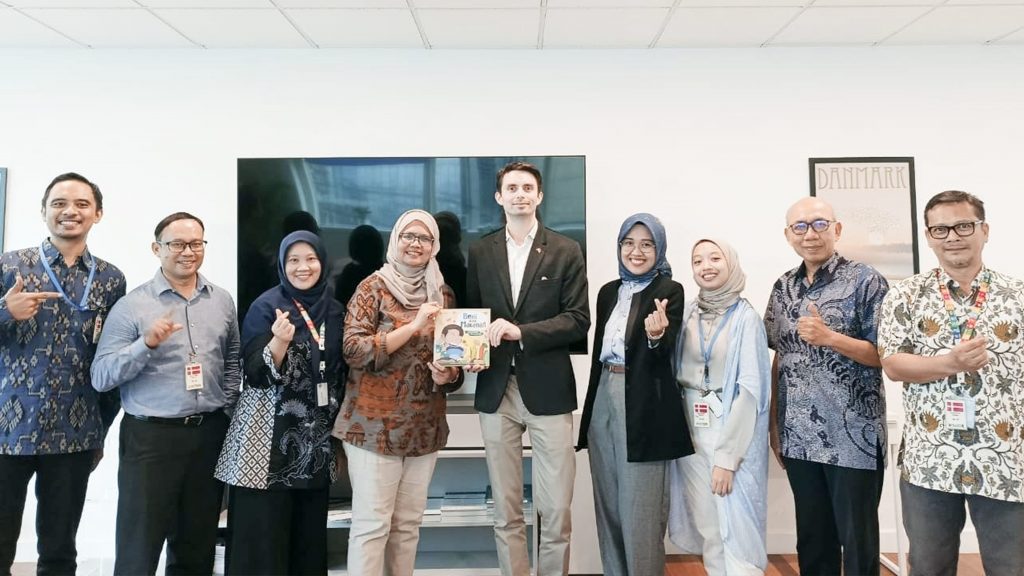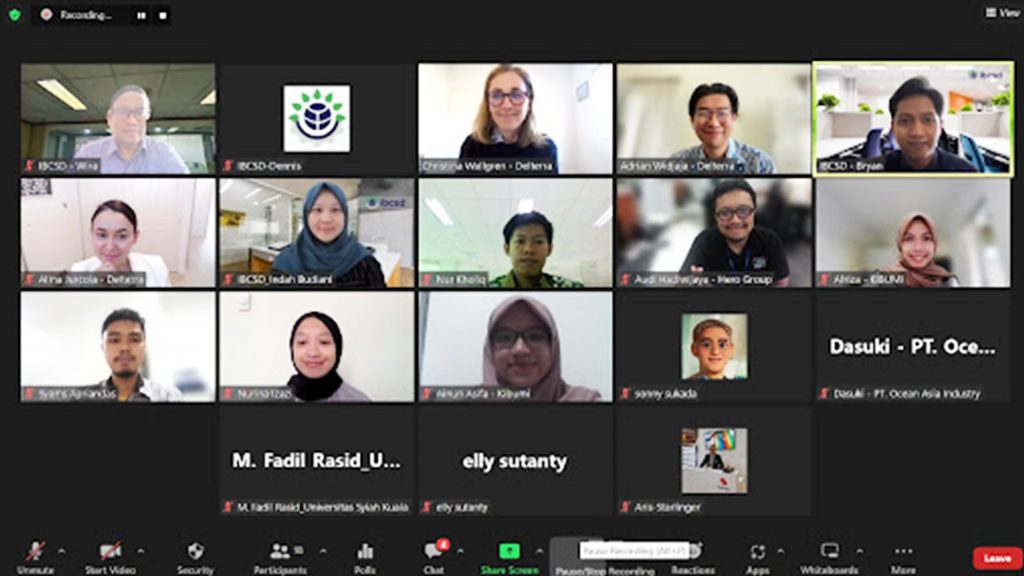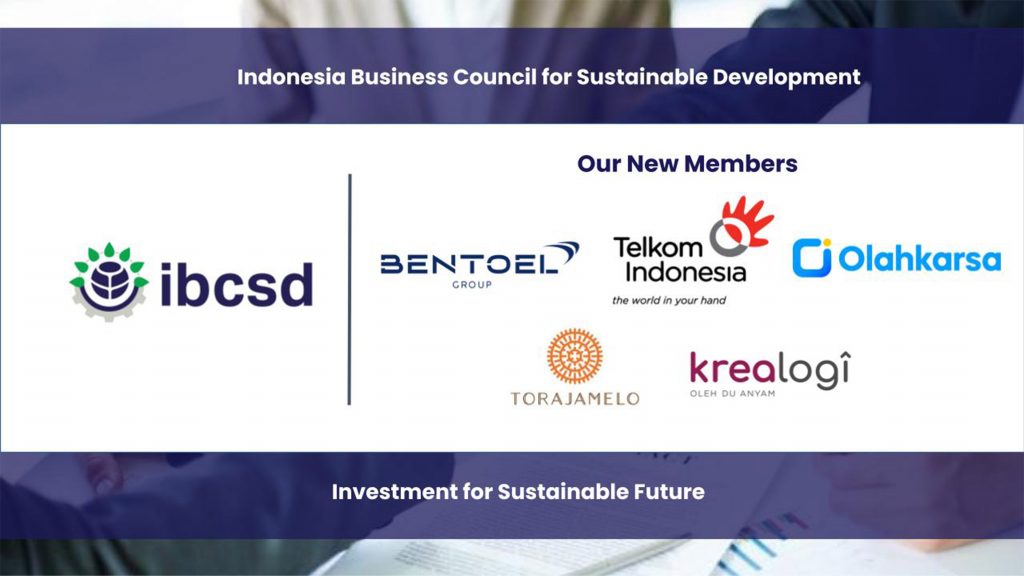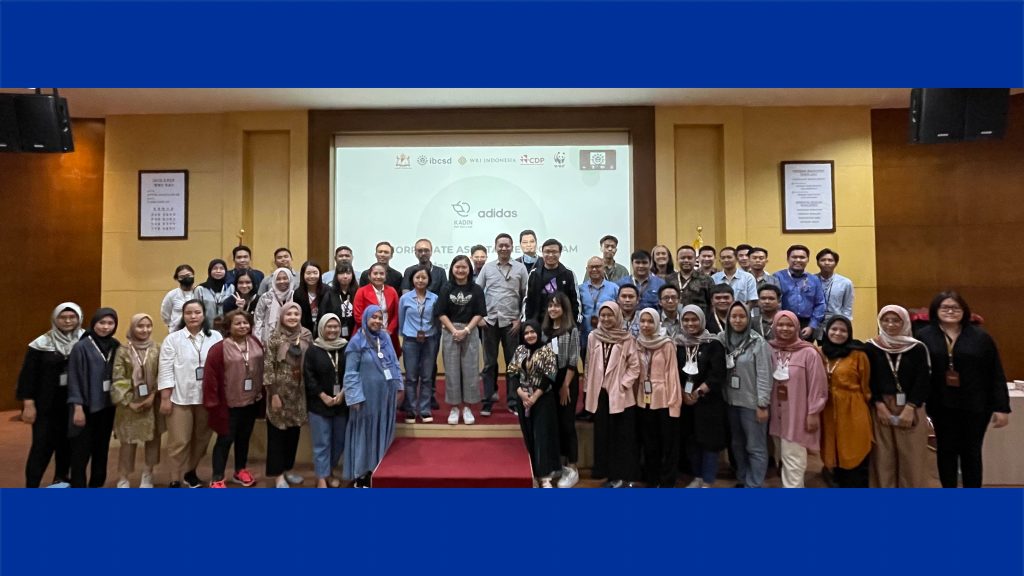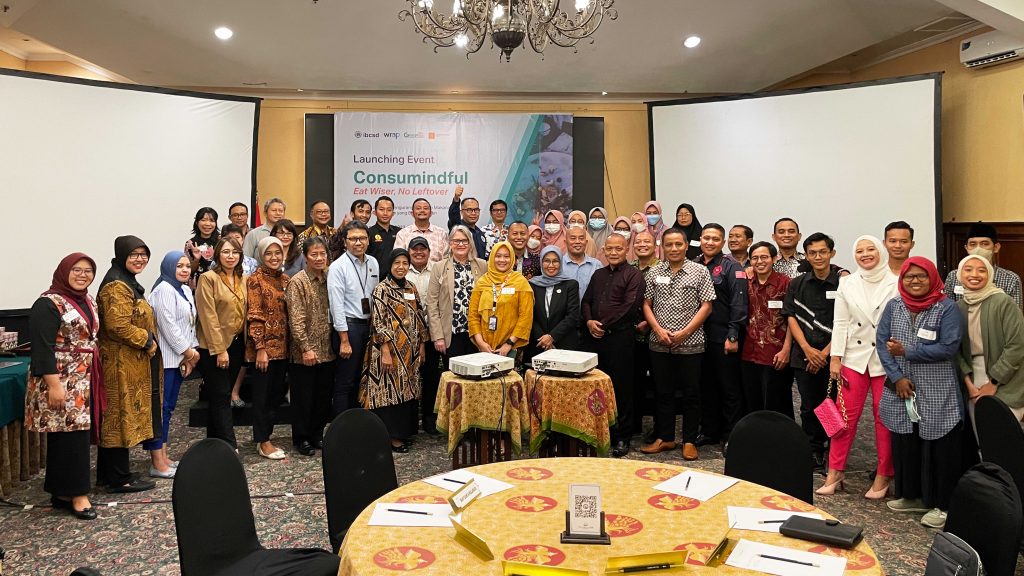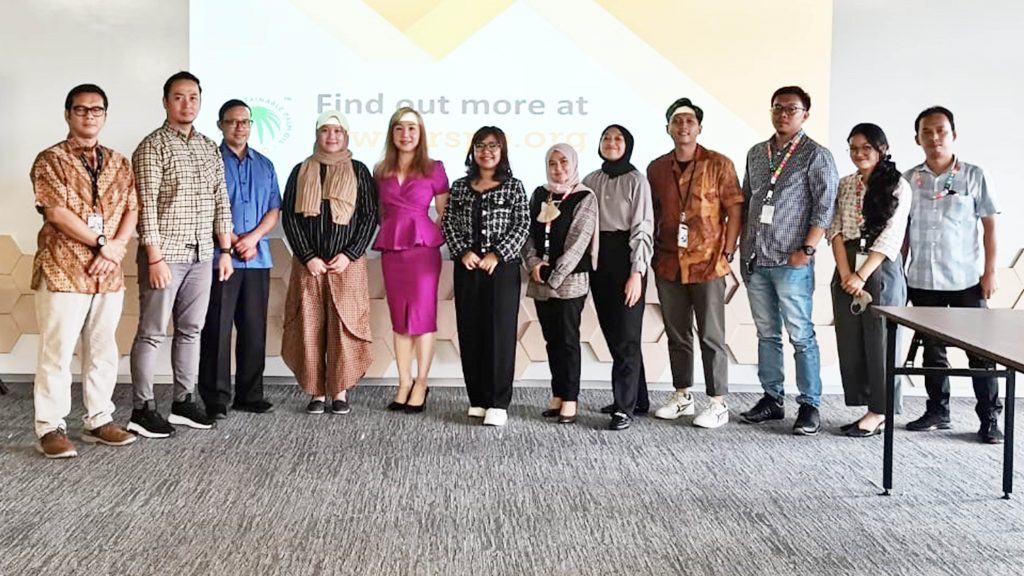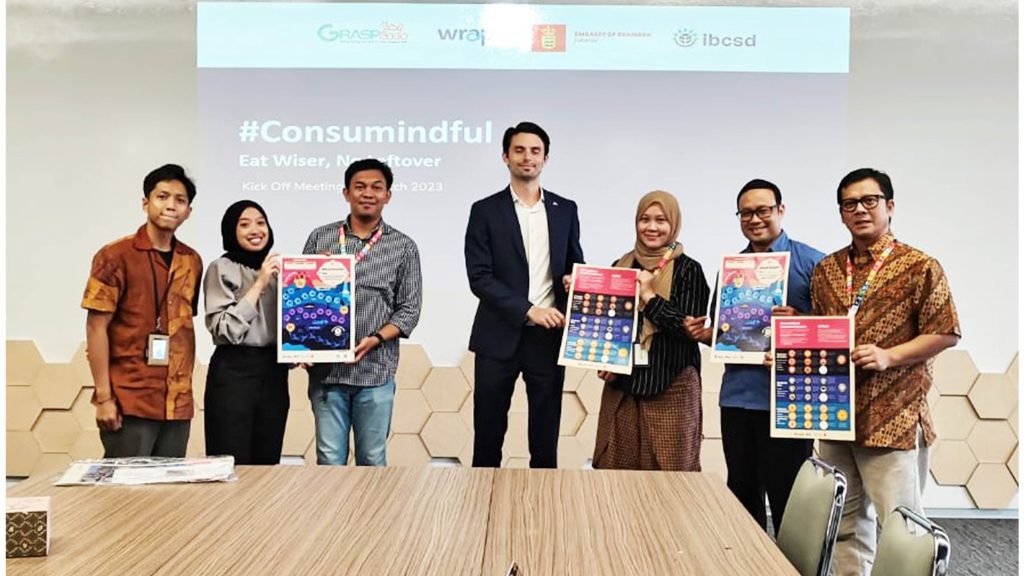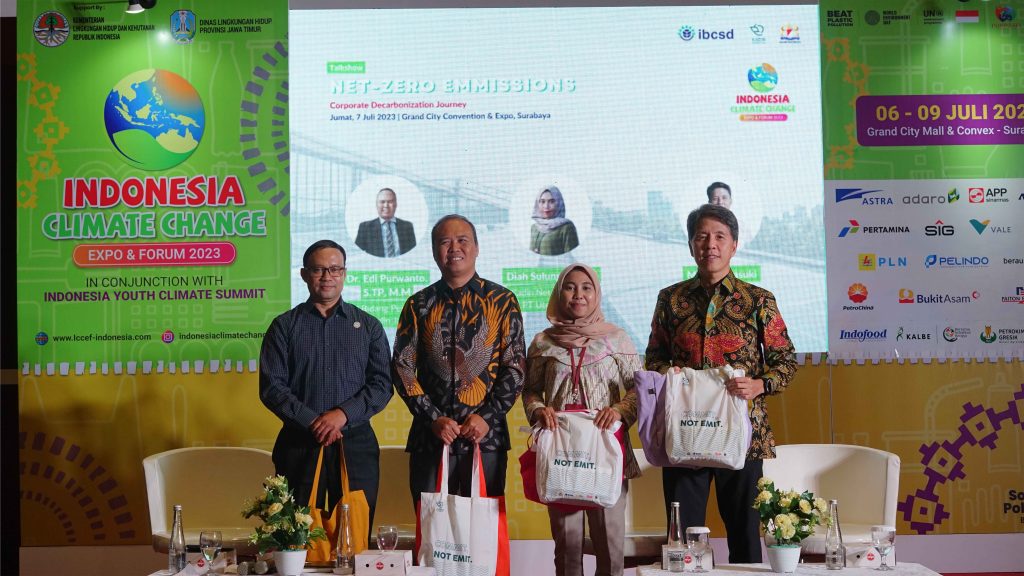
“Net Zero Emissions: Strengthening Corporate Decarbonization Journey” Talk Show Highlights Corporate Actions for Climate Change
decarbonize industrial processes and expand renewable energy sources, driving the importance of corporate involvement in this transition.
Recognizing the global business community’s commitment to achieving net-zero emissions by 2050, IBCSD, in collaboration with Kadin Indonesia and other partners, established the KADIN Net Zero Hub (KADIN NZH). This groundbreaking platform aims to support Indonesian companies on their journey towards achieving net-zero emissions.
The event featured prominent speakers who shared their insights and best practices on achieving net-zero emissions. Among the lineup of speakers were Dr. Edi Purwanto, STP, M.M., Deputy Chairman of the Kadin East Java for Agriculture and Food; Diah Sulung Syafitri from Kadin Net Zero Hub secretariat; and Minarto Basuki, Director of PT Pakuwon Jati Tbk.
The impact of climate change is real and experienced today. Edi Purwanto said, “The climate crisis is occurring and getting more worrying, therefore it is considered important to limit the temperature rise to 1.5°C. Of course, a joint contribution is needed to achieve this goal.”
Furthermore, the talk show emphasized the urgency of collaboration and collective action in combating climate change. The event serves as a reminder that the transition to a net-zero economy requires the combined efforts of businesses and other stakeholders. “Businesses will soon be subject to a carbon tax, which needs to be immediately anticipated. For this reason, Kadin Indonesia initiated the KADIN NZH as a forum for companies that want to start their net-zero journey,” said Diah Sulung Syafitri.
Companies and industry experts have seen the threat of the climate crisis and therefore many have set targets to reduce their emissions like PT Pakuwon Jati, Tbk, the leading developer group in Indonesia. Minarto Basuki said, “We aimed to fulfill our commitment to net-zero through our membership in KADIN NZH. As a Public Company, our investors started demanding emission reporting through CDP, so it became our obligation to comply. KADIN NZH partners helped us adopt a more systematic approach to reducing our carbon footprint.”
“Net Zero Emissions: Strengthening Corporate Decarbonization Journey” is a significant step forward in raising awareness and fostering a sense of responsibility amongst Indonesian companies in their journey towards net-zero emissions. Through the KADIN Net Zero Hub, the Indonesian business community can collaborate and drive sustainable change, contributing to a greener and more resilient future.
For more information on the KADIN Net Zero Hub and future initiatives of IBCSD, please visit www.ibcsd.or.id.
Contact:
Name : Nurina Izazi
Title : Communication and Member Relations Manager
Phone : 0813 3261 4268
Email : [email protected]
